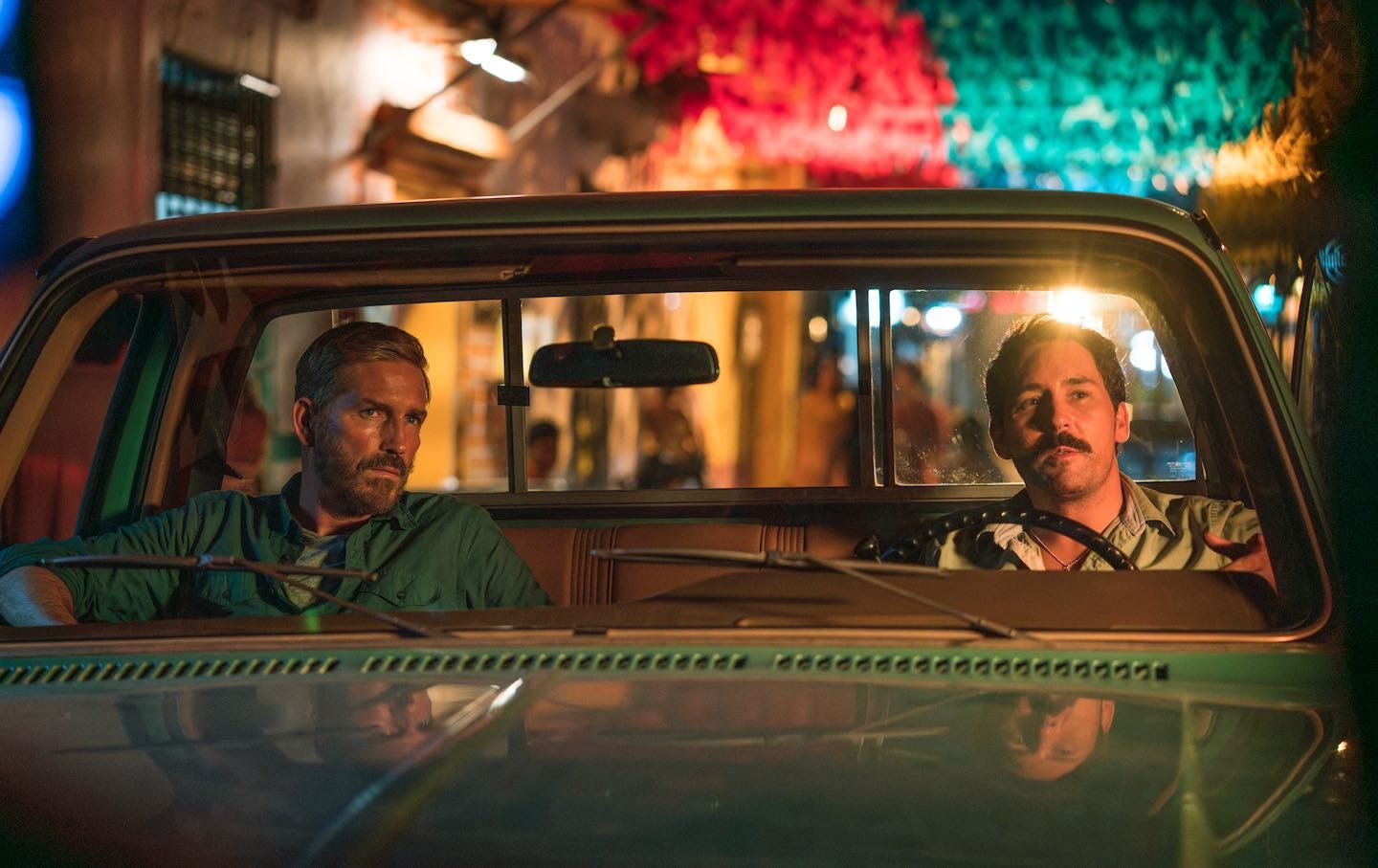Flashback: On the Need for Conservative Pulp
"...[T]he man alone with a gun staring off into the distance? It’s the primordial American myth."
This was one of the first articles to appear on this Substack, and I think it’s really good. I’m sending it out because I assume most of you haven’t read it and also I need to stall as I edit the upcoming podcast episode on Fallout: New Vegas. Please consider becoming a paid subscriber to support my work. Every new subscription makes a real difference in my life.
About 100 years ago, America was overrun with trash. Not literal trash (though that may have been a factor in some places) but trash literature. “Pulp magazines,” so called because the paper they were made from consisted of wood pulp, the cheapest paper that publishers could buy, flooded store shelves. No corner was left uncut in the making of these magazines. The edges were ragged, the pages unglossed. The authors were a motley collection of poorly-paid eccentrics and lowlifes who could never make it in the traditional literary world of the time.
These magazines fast developed a bad reputation. The content was violent, lurid, irreverent, and weird. It was almost exclusively genre fiction—stories about detectives, cowboys, pirates, and crazy people—or non-fiction that was perhaps best left unbelieved. They were most popular among young men, their popularity greatly enhanced by the fact that the magazines were extremely cheap. Circulations ran into the hundreds of thousands, and eventually the millions.
Although pulps became infamous for having juvenile and low-quality stories, they also attracted people who would go on to have very high reputations. Horror pioneer H.P. Lovecraft and Robert E. Howard, creator of Conan the Barbarian, spent their entire lives writing for pulps, and now are regarded as some of the greatest writers of the period. Other famous authors, from Agatha Christie to Joseph Conrad to Isaac Asimov also experimented with the format.
Pulp magazines certainly sold a lot of copies, but the real impact came from their long-term influence. A generation of young men read these books, were captivated, and then went on to make their own work. Stories written in these magazines inspired countless television and movie adaptations. The entertainment industry coasted on that energy for decades. It drove the culture in spite of the fact that many of the themes central to pulp, masculinity, heroism, honor, were under constant attack. There was a full-blown cultural revolution, and yet pulp survived.
Pulp fiction was full of life. It took readers to places they wanted to go. These stories are naturally compelling to people, whatever political message they’re being hit over the head with in the main stream. The art was very striking, it made you think. The stories had a fatalistic bent and a mean streak.
A while ago I watched “The Sound of Freedom” (2023), which was really good. The procedural aspect of the movie was what I found most compelling. I don’t know a lot about child trafficking or how law enforcement combats it. It’s interesting to find out how these dark worlds work and how the good guys overcome that. The movie was genuinely well made. It looked great. It was well-directed. The acting was very strong.
And yet it didn’t land for me. I doubt I’ll ever watch it again. I don’t have any real complaint other than that it was missing the kind of vitality that you see in pulp fiction. The subject matter of “The Sound of Freedom” is genuinely awful. Several parts are hard to watch. At times it feels like a horror movie. This is to the credit of the filmmakers, but I think it ultimately mutes the film’s long-term impact.
This is one of the few movies that pretty much every who identifies as conservative is going to see. Its closest equivalent is probably “Top Gun: Maverick” (America’s great patriotic epic). That movie was a breath of fresh air. The problems people encounter in their everyday lives were not present. Obviously, a movie about child trafficking is not going to be upbeat, but it really is a shame that the one movie every conservative saw and can talk about with each other was so bleak. People watch movies to be entertained. Positive messages always stick around longer than negative ones.
The strongest part of “The Sound of Freedom” was the middle section in Colombia. Unable to attack the traffickers’ network directly, the characters decide to create a fake child brothel of their own and request child prostitutes from the traffickers, so the kids can then be rescued. It was set up kind of like a heist movie. The characters themselves seemed excited because they were actively planning something clever. They go undercover and adopt fake moustache-twirling personas. That section even has its own climax: The hairbrained scheme works. The Colombian federal police storm the place and save all the kids. Jim Caviezel gets to say the title of the movie. It’s great. I thought the movie was going to end there, and my thoughts on it probably would have been different if it had.
But the movie goes on. The satisfying victory is dashed by the hero’s descent into an even nastier situation. I get why it goes on because all of it is based on a true story, but ultimately a movie is a piece of art. It doesn’t have to be just a true story. Save it for the sequel, man. I worry that there’s only so much audiences can take and dwelling on really dark stuff has a negative impact on them.
The movie played it too straight. It kept looking into the abyss. There are lots of moments where I was eagerly waiting for Caviezel (who looks like he’s about to explode for half the movie) to rip someone’s jaw off or just start blasting, but the moment never came. I know I’m not the only person who had this feeling. Again, I realize that the movie is based on a true story but indulging in these lower impulses is kind of essential for entertainment media. Respect must be paid to artistic license. It’s time to inject a bit of pulp into conservative culture: A little bit more irreverence, a little bit more ruthlessness, and a little bit more fun. “The Sound of Freedom” will probably always be well-regarded, but it’s never going to be someone’s favorite movie. People need new favorite movies.
I promise that this is the last hot take I’ll give on Oliver Anthony (I swear, I really do believe he’s a nice guy and not a hicklib or anything like that), but he just released a new song called “I Want to Go Home” and all I could think was that it sounds like music to commit suicide to. This cannot be the message that conservatives fixate on and center themselves around—is especially true during bad times, when people are more demoralized then ever. Without a positive message we are going nowhere. Anthony’s life is probably pretty good now, absent the problems that always accompany overnight fame. The weepiness just can’t last.
For decades conservatives have been boxed out of the entertainment industry. That means that the messages people receive from their screens are largely those crafted by liberals. Yellowstone, The Last of Us, Tulsa King: there are tons of shows and movies that inject liberal political propaganda into settings that appeal to conservatives, who are usually happy eat it up. People are drawn to exciting stories and dynamic characters. They want the pulp energy, even if it comes with them having to grin and bear political messaging from people who hate them.
Today there is more desire than ever for an alternative to this arrangement. There’s also more money and talent than ever before to meet this demand. A concert held by Anthony shortly after “Rich Men North of Richmond” went viral attracted thousands of people. The theater I saw “Sound of Freedom” in was packed. Everyone clapped afterwards. People want to be a part of a new thing that’s made and enjoyed and talked about by friendlies, I hope that what they’re presented with to throw their support behind gives them something to really look forward to.
If you enjoyed this article, please upgrade to a paid subscription to support my work. Every new subscriber really does help me out a lot.







Great article. For anyone looking to get into hardboiled or pulp, Richard Stark’s Parker novels of the 60s and early 70s are a great place to start. They’re incredibly nasty in the best sense, totally amoral, heavily procedural stories about an unrepentant professional thief doing jobs. The first one, the hunter, was adapted as Point Blank, the classic lee Marvin movie. There are about 15 books and you could read one in an afternoon with the exception of the last one in the series, Butcher’s Moon. University of Chicago Press has reissued all of them. They’re a great antidote to the much more female-oriented, serial killer obsessed crime fiction of the 80s onwards
It's truly fascinating to read this article now, seeing how much has changed in the indie entertainment space (the successes of Eric July's Rippaverse, ANVIL Magazine, Razörfist & GPrime85's "Ghost of the Badlands"), but seeing the same conversations happening with Con Inc. and the many brains rotted by their punditry. Not to mention going into an election year when people need the chance to decompress, but are more likely to gorge themselves on 24/7 news coverage.
I think the greatest problem is that so many are still wired into the traditional entertainment ecosystem, so everyone keeps expecting to get something from the top-down to fix everything, like Top Gun: Mavericks just grow on trees, and if shows like "Mr. Birchum" is anything to go by, it's not happening anytime soon. But at the same time, it's pulling teeth get people to try something new to them, whether modern indies, or classics.
Either way, I'm quite content to have my own projects like "365 Infantry" stay apolitical in their presentation. I'd rather everyone leave their "based" and "woke" at the door, and just enjoy themselves. People need a chance to breathe.